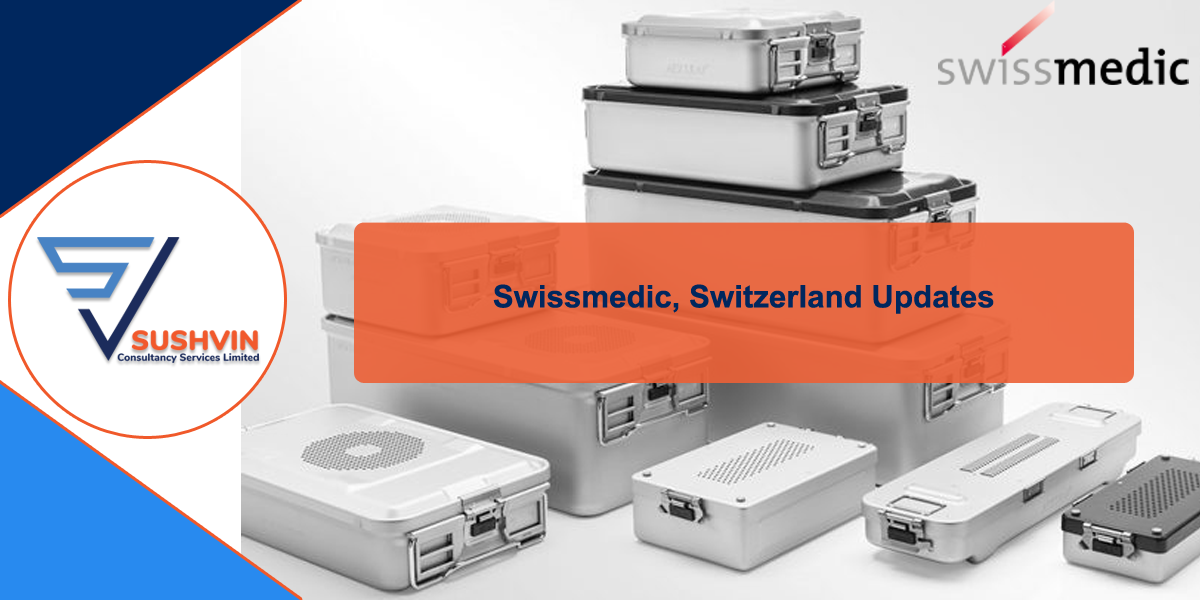UK Updates

The Medicines and Healthcare products Regulatory Agency has published a blog on the emerging roadmap and transition provisions. 1 November 2024
Emerging Roadmap and Transition Provisions for Med Tech
The Medicines and Healthcare products Regulatory Agency (MHRA) has unveiled a comprehensive roadmap to enhance the UK's Med Tech regulatory framework. Key highlights include:
AI Airlock Pilot: Nearly 40 applications received for the regulatory sandbox to shape future AI medical device regulations.
New Statutory Instrument: Laid to clarify surveillance, vigilance, and reporting requirements, ensuring device safety.
Abridged Approvals: Plans to offer streamlined approvals for devices already approved by major international regulators.
Consultations: Upcoming consultations on IVD regulation and UK-specific labelling flexibility.
Pre-Market Measures: Introduction of Unique Device Identifiers (UDI) and Implant Cards to improve patient safety and device traceability.
The UK government has opened a consultation on Medical Devices Regulations: Routes to market and in vitro diagnostic devices
The MHRA is inviting members of the public to provide their views on proposed changes to the regulatory framework for medical devices.
This consultation closes at 11:59 PM on 5 January 2025
Consultation Description
The Medicines and Healthcare products Regulatory Agency (MHRA) is inviting members of the public to provide their views on proposals to update the regulatory framework for medical devices.
They welcome the views of patients, medical device researchers, developers, manufacturers and suppliers, clinicians, other healthcare professionals and the wider public on four areas:
This consultation applies to medical devices in Great Britain. Postal responses must be received before 5 January 2025.
European Updates

Medical Device Coordination Group Published MDCG 2024-13 - Regulatory status of ethyleneoxide (EtO) intended for the sterilisation of medical devices - 29 October 2024
This document is crucial for manufacturers and stakeholders in the medical device industry, providing clear and detailed guidelines on the use of EtO.
Highlights:
Regulatory Clarifications: The document offers comprehensive insights into the regulatory requirements for using EtO in the sterilization process, ensuring compliance with EU regulations.
Safety and Efficacy: It emphasizes the importance of maintaining high safety standards and efficacy in the sterilization process, highlighting best practices and necessary precautions.
Environmental Considerations: The guidance includes information on managing the environmental impact of EtO, promoting sustainable practices in the sterilization process.
Documentation and Reporting: Detailed instructions are provided on the documentation and reporting requirements for manufacturers, ensuring transparency and traceability in the use of EtO.
Stakeholder Responsibilities: The document outlines the responsibilities of various stakeholders, including manufacturers, notified bodies, and regulatory authorities, fostering a collaborative approach to compliance.
MDCG 2024-13 is an essential resource for anyone involved in the sterilization of medical devices using ethylene oxide. It provides clear and actionable guidance to ensure regulatory compliance, safety, and environmental sustainability. This document is a valuable addition to the regulatory framework, supporting the safe and effective use of EtO in the medical device industry.
Medical Device Coordination Group Published MDCG 2024-14 - Guidance on the implementation of the Master UDI-DI solution for contact lenses (November 2024)
ReferenceThis guidance is crucial for ensuring proper identification and traceability of contact lenses, which are considered highly individualized medical devices.
Key Points:
Introduction and Scope: The document outlines the purpose of the Unique Device Identification (UDI) system as per Regulation (EU) 2017/745, aiming to enhance the traceability of medical devices.
Terminology: It defines key terms such as standard contact lenses, made-to-order contact lenses, and the Master UDI-DI.
Master UDI-DI Assignment: Detailed instructions on how to assign Master UDI-DIs for both standard and made-to-order contact lenses.
Guidelines on labelling and registering these identifiers in the European Database on Medical Devices (Eudamed).
Vigilance Reporting: Procedures for reporting issues related to both regulation-compliant and legacy contact lenses.
Timeline and Implementation: The document provides a timeline for the application of the Master UDI-DI and steps for device registration in Eudamed.
This guidance document is essential for manufacturers and stakeholders in the contact lens industry to ensure compliance with EU regulations and to maintain high standards of device traceability and safety.
Position Paper - Questionnaire: ARTIFICIAL INTELLIGENCE IN MEDICAL DEVICES jointly published by German Notified Bodies Alliance for Medical Devices And Team NB, The European Association of Medical Devices Notified Bodies
Reference this document is a significant step towards clarifying the regulatory landscape for AI-based medical technologies.
Highlights include:
Regulatory Requirements: The paper provides a detailed overview of the necessary approvals and documentation for AI-based medical devices, ensuring compliance with existing regulations.
Development Guidelines: It outlines best practices for software development, data management, and model evaluation, which are crucial for the safe and effective deployment of AI in medical devices.
Post-Market Surveillance: The document emphasizes the importance of ongoing monitoring and risk management, offering strategies to ensure the continued safety and performance of AI medical devices.
Ethical Considerations: The paper addresses ethical concerns related to AI in healthcare, including data privacy and the transparency of AI algorithms.
Stakeholder Engagement: It highlights the need for collaboration between manufacturers, regulators, and healthcare providers to foster innovation while maintaining high safety standards.
This position paper by Team-NB is an essential resource for manufacturers and stakeholders in the medical device industry. It provides clear guidance on navigating the complex regulatory environment for AI technologies, promoting innovation and ensuring patient safety.
Swissmedic Updates

Swissmedic has released a new information sheet detailing the requirements and procedures for combined studies.
Identification number: BW600_00_017
Version: 2.0
Valid from: 31.10.2024
These studies involve conducting clinical trials with medicinal products or advanced therapy medicinal products (ATMPs) alongside clinical investigations with medical devices or interventional performance studies with in vitro diagnostics.
This information sheet is intended for sponsors of combined studies, contract research organisations (CRO), and investigators. It covers topics that are unique to combined studies in terms of their submission for approval to Swissmedic and their conduct.
Warranty Provisions: New requirements ensure that healthcare providers have clear and enforceable rights regarding the warranty period and conditions. For instance, the warranty period starts from the date of device acceptance, and digital warranty certificates are now acceptable.
Key points include:
Approval Requirements: Clarification on when approvals from Swissmedic are needed for both medicinal products and medical devices.
Submission Process: Guidelines on submitting a single application that covers all aspects of the combined study.
Ethics Committees: The role of ethics committees in differentiating and categorizing research projects.
This comprehensive guide aims to streamline the approval process and ensure compliance with regulatory standards.
